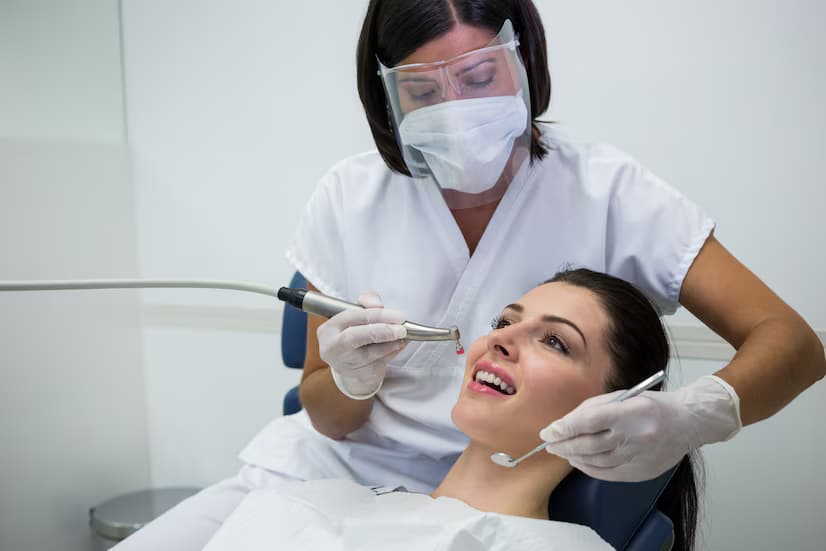When we think of going to the dentist, many people imagine a big chair, sharp tools, and a bright light in the face. But there’s one person we often overlook, the dental hygienist. They’re not just there to polish your teeth. In fact, a dental hygienist plays a major role in keeping your mouth healthy, especially when it comes to preventing gum disease.
What Exactly Does a Dental Hygienist Do?
A dental hygienist is trained to clean your teeth professionally, removing the plaque and tartar that regular brushing and flossing miss. They also check for signs of gum problems, tooth decay, and other oral issues. During your visit, they might talk to you about your daily brushing habits, how often you floss, or what food and drink choices may be affecting your teeth.
But that’s only the beginning. Dental hygienists also apply treatments like fluoride, take X-rays, and guide patients, both kids and adults, on how to care for their teeth at home. They work closely with dentists, but they are the ones who often catch early warning signs of gum disease before it becomes a bigger issue.
Why Gum Disease Shouldn’t Be Ignored
Gum disease starts quietly. It may begin with red or swollen gums, or a little bleeding when you brush. But if left untreated, it can lead to much more serious problems, including tooth loss. Gum disease is not just a dental issue; it's also linked to heart disease, diabetes, and other health conditions.
This is where the dental hygienist becomes so important. They’re trained to spot the early signs of gum trouble that most people miss. By getting regular cleanings and following the advice of your dental hygienist, you can keep gum disease from taking hold in the first place.
Regular Visits Matter More Than You Think
Skipping your dental visits because “nothing hurts” can actually make things worse. Gum disease doesn’t always come with pain, especially early on. By the time it does, you may already need more serious treatment.
Dental hygienists don’t just clean your teeth. They track changes in your gum health over time. If something seems off, even slightly, they can act fast. Catching gum disease early means a much easier and less expensive fix.
How Dental Hygienists Help Build Good Habits
Many people don’t floss as often as they should, or they brush too hard, or not long enough. A dental hygienist helps you spot where your routine needs improvement. They’re great at explaining things in a way that makes sense, especially for kids or anyone who feels nervous about dental care.
They might recommend softer toothbrushes, show you how to angle your brush properly, or suggest rinses and tools that make flossing easier. These small changes can make a big difference over time.
They Don’t Just Work with Adults
Dental hygienists are often the first people children meet during their dental visits. They help kids feel safe and comfortable, making the experience less scary. By building a positive relationship early on, they encourage children to take care of their teeth and gums from a young age.
This early education helps set lifelong habits, and the earlier we start focusing on gum health, the better.
They Know More Than You Might Expect
Dental hygienists study for several years and stay up to date with the latest techniques and research. They’re trained in spotting signs of not just gum disease, but also oral cancer, infections, and even health conditions that show up in the mouth first.
They follow strict hygiene protocols and often guide the rest of the dental team in maintaining cleanliness and patient safety. Their role blends hands-on care with education and prevention, which makes them a valuable part of any dental clinic.
Final Thoughts
A dental hygienist does far more than give your teeth a polish and send you on your way. They’re your everyday defenders against gum disease, spotting early signs, teaching better habits, and making sure your smile stays healthy for the long run.
By seeing your dental hygienist regularly and listening to their advice, you’re not just avoiding bad breath or the odd cavity. You’re protecting your gums, your teeth, and your overall health. And that makes every visit worth it.





Comments